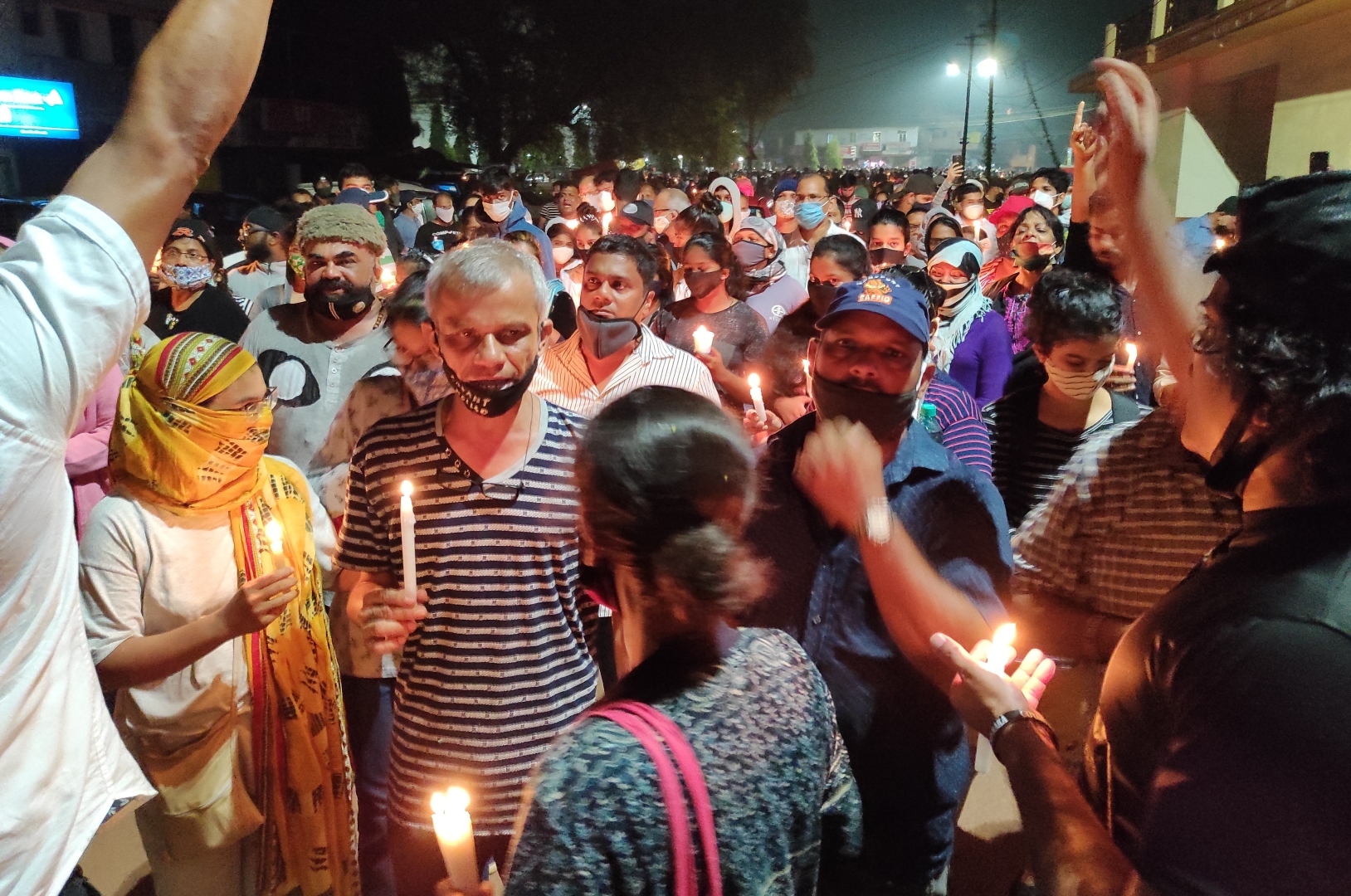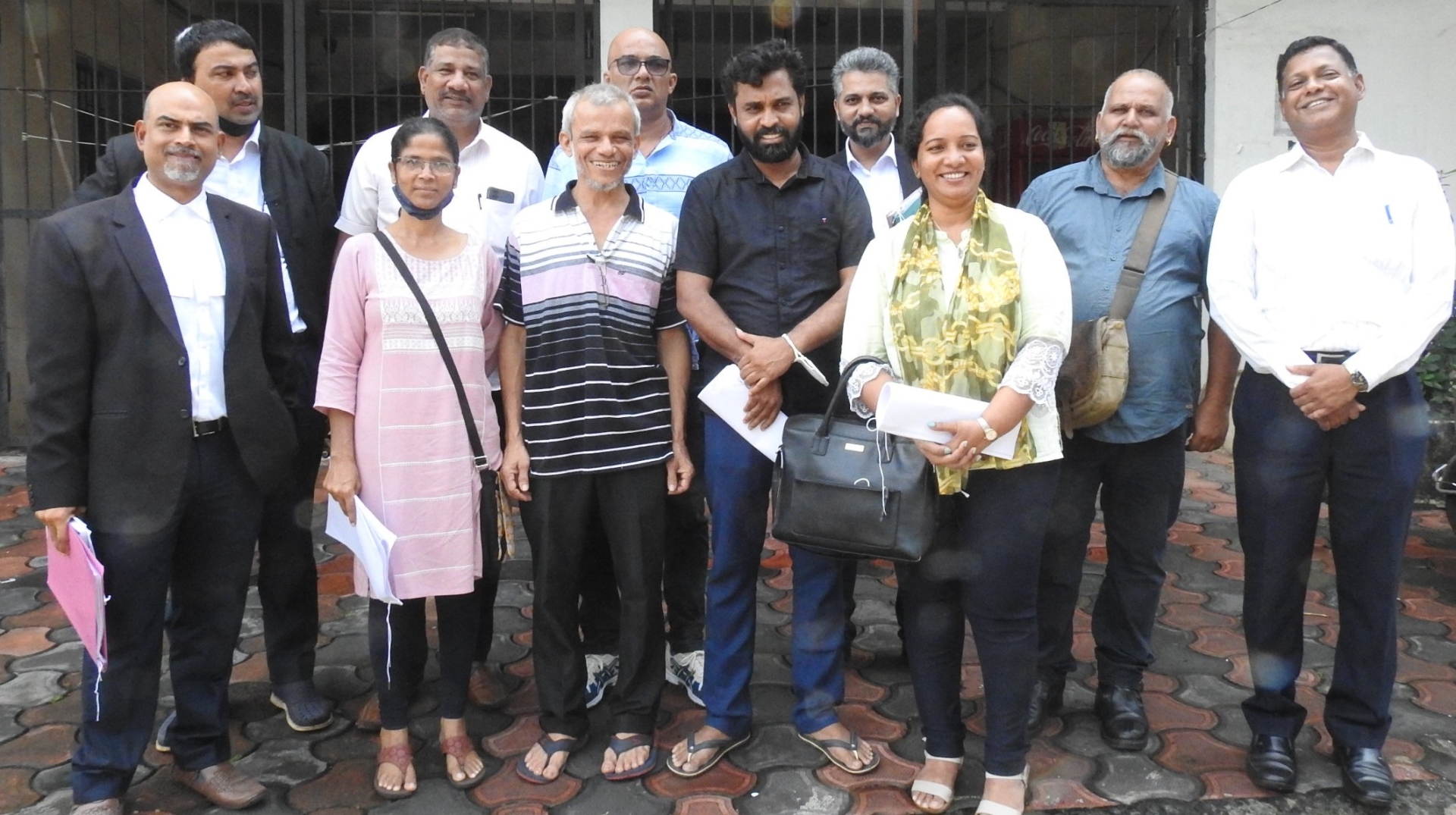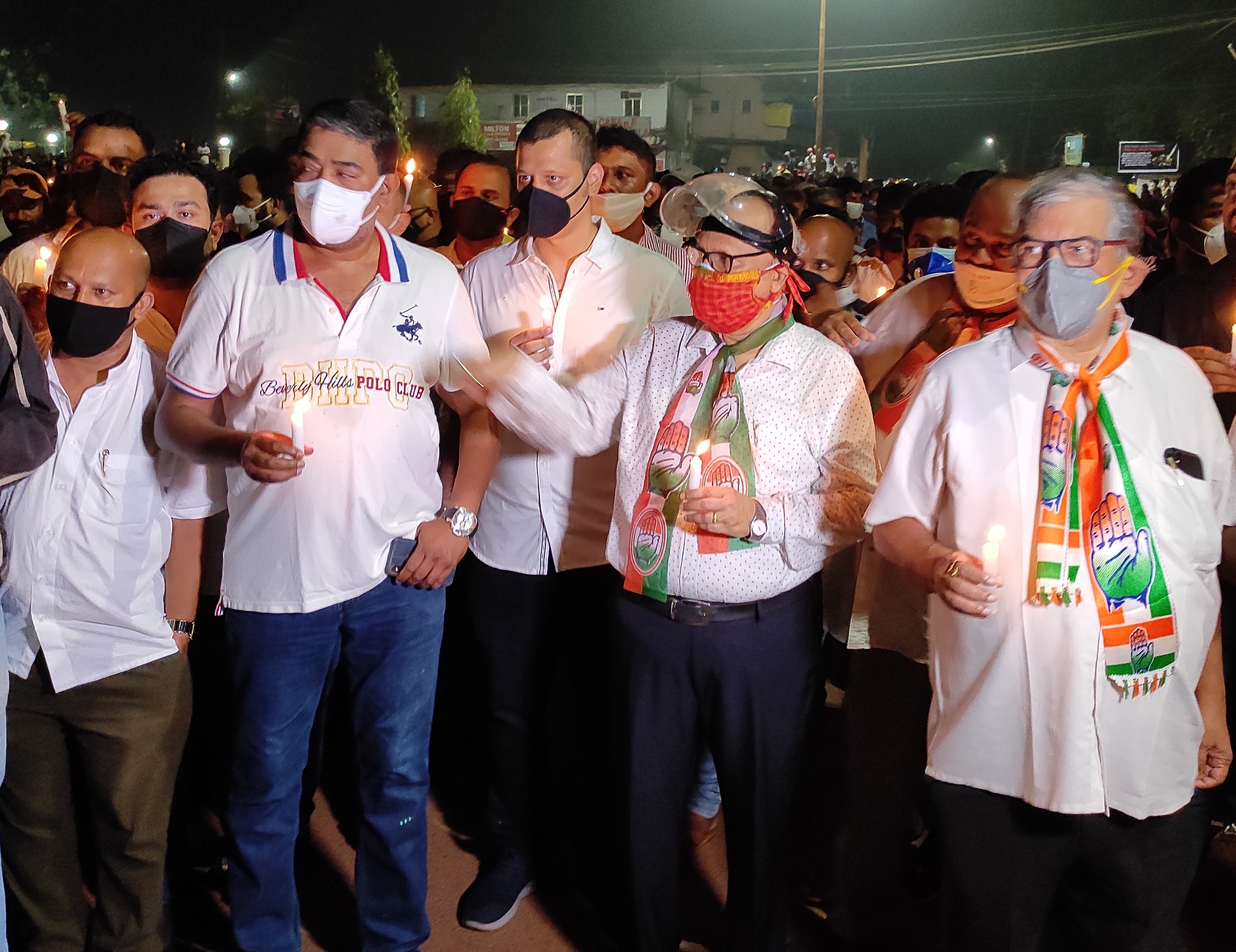MP, MLA among activists booked in three cases from 2020 protests with no resolution even after nearly 5 years

File photo of Chandor November 1, 2020 midnight protest against coal.
MARGAO
As November 1 approaches, Goa marks five years since thousands of people from all corners of the State converged on the historic village of Chandor on the night of November 1-2, 2020. The unprecedented gathering was a powerful protest against the controversial track-doubling project, widely seen as part of an effort to transform Goa into a coal transportation hub.
Despite sustained opposition from local communities, environmentalists, and civil society groups over the past five years, the government has pushed ahead with the project, with the Indian Railway now announcing that the project is now ready for commissioning.
At the Court of the Chief Judicial Magistrate, Margao – the Court designated to try cases against MPs and MLAs, however, a group of anti-coal activists are facing criminal proceedings after the Goa Police and the Railway Police charged them for participating in the historic Chandor agitation as well as the protests at Arossim against track doubling.
In fact, three separate criminal cases are pending and dragging on against the social activists – two cases related to the 2020 Chandor midnight agitation instituted by the Railway Protection Force and the Maina-Curtorim police and the third case filed by the RPF in respect of the 2020 Arossim protests.
Among the prominent activists who had been booked by the Goa Police and RPF and facing trial includes incumbent South Goa MP Viriato Fernandes, Benaulim MLA Venzy Viegas.
Cases drag on with no end in sight
What’s particularly noteworthy is that all three cases have been dragging on for the past five years, with no resolution in sight. According to court sources, none of the cases are anywhere near finality. Adjournments have become routine—especially in the two cases filed by the Railway Protection Force (RPF).
During a recent hearing in the Arossim case, former Chief Judicial Magistrate (CJM) Judge Carlo Santana Silva issued a stern warning to the Special Public Prosecutor representing the RPF. The warning came after the prosecutor was conspicuously absent, prompting railway police officials to file an application seeking exemption on his behalf.
A visibly agitated CJM remarked that “enough is enough”, giving the Special Public Prosecutor a “last and final opportunity” to proceed with the case. Court insiders noted that little progress has been made in the two criminal cases filed by the RPF, primarily due to the repeated absence of their legal representative.
Goa Police seek further probe after four years

In the 2020 Chandor case—filed against 10 activists before the Chief Judicial Magistrate in Margao—the Maina-Curtorim police surprised both the activists and the prosecution. In mid-January 2025, they filed an application seeking the court’s permission to conduct further investigations and submit an updated report.
This move comes four years after the November 1–2, 2020 protest at Chandor, and nearly two years after the Maina-Curtorim police had already filed a chargesheet against the accused. Since January 14, arguments on the police’s application have been ongoing. During the latest hearing, the CJM directed the investigating officer to appear in court—causing further delays in the trial.
The police argued that fresh investigation was necessary, claiming that vital evidence remained uncollected. Specifically, they cited the absence of station diary extracts documenting the deployment of police personnel from the concerned stations for bandobast duty. According to their plea, these extracts are crucial to establish the actual presence of the complainant and witnesses at the time of the alleged incident.
Calls grow for clarity from turncoat MLAs, Independent on coal issue

MARGAO: With candles in hand, these politicians had marched shoulder to shoulder with activists and thousands of Goans during the midnight protest at Chandor on November 1, 2020. Their rallying cry: to oppose track doubling and plans to convert Goa into a coal hub.
Yet, it is a striking irony that while social activists continue to make repeated appearances in court after being booked for participating in the agitation, the political class has largely escaped action—both from the Goa Police and the Railway Protection Force (RPF).
Among the prominent political figures who had shown up at Chandor were Congress turncoats Digambar Kamat, Aleixo Sequeira, and Sankalp Amonkar. They stood in solidarity with protesters, voicing their opposition to coal transportation and track doubling. Joining them was Curtorim Independent MLA Reginaldo Lourenco, along with other leaders such as Goa Forward Party chief Vijai Sardesai, AAP MLAs Venzy Viegas and Cruz Silva, and Congress MLAs Yuri Alemao and Altone D’Costa.
Taking note, Aleixo Sequeira, Sankalp Amonkar, Venzy Viegas, Cruz Silva, Yuri Alemao and Altone D’Costa were not MLAs when they had participated in the 2020 Chandor agitation.
With the anti-coal agitation back in the spotlight—following Indian Railways’ announcement to commission the controversial double tracking project—questions are now being raised on social media. Many are calling out Congress-turned-BJP MLAs, including PWD Minister Digambar Kamat, outgoing Minister Aleixo Sequeira, and Sankalp Amonkar, as well as Independent MLA and IDC Chairman Reginaldo Lourenco, demanding clarity on their current stance.
Citizens have particularly questioned whether these four MLAs—now part of or aligned with the ruling party—ever raised the
issue of withdrawing the cases against the social activists. Some are even asking whether they have, at any point since switching allegiances, formally opposed the double tracking project or the transportation of coal.
Nature of cases pending in Margao Court